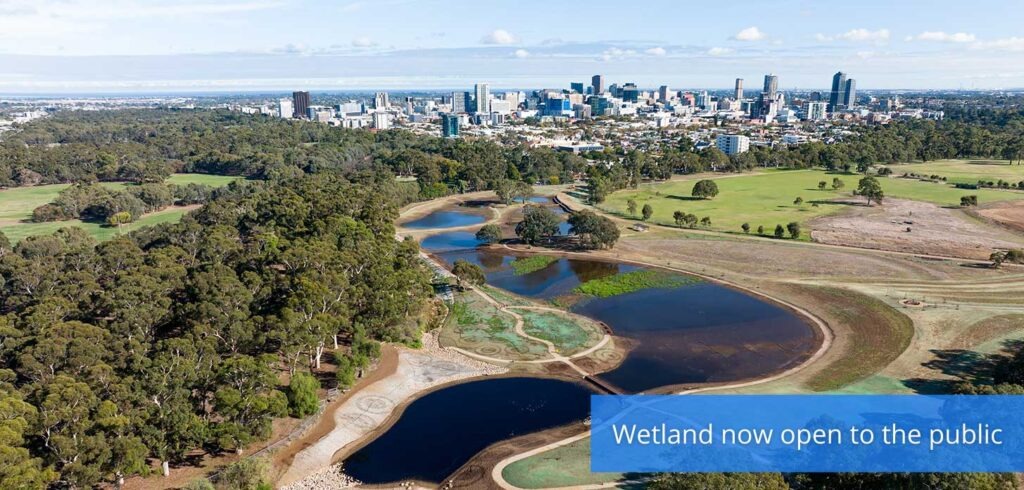Brown Hill is one of the important drainage watercourses in the Adelaide metropolitan area. Brown Hill Creek travels through the communities of Crafers West, Brown Hill Creek, Mitcham, Torrens Park, Hawthorn, Unley Park, Millswood, Goodwood, Forestville, Everard Park, Ashford, Kurralta Park, Plympton, North Plympton, Netley, and Adelaide Airport before emptying into the Patawalonga.
The catchment area of Brown Hill Creek is 32 square kilometres, of which 18 square kilometres is a rural area.
The catchment area can be conveniently divided into two sections:
- Upper Brown Hill Creek: The section upstream of Anzac Highway to its source in the rural area of the Mitcham hills, and
- Lower Brown Hill Creek: The downstream from Anzac Highway to its confluence with Keswick Creek at Adelaide Airport.
The creeks, unfortunately, have a history of flooding, poor flood protection, and somewhat significant flood danger.
How does the Brown Hill Keswick Creek Stormwater Project work?
The Brown Hill Keswick Creek Stormwater Project was established due to the 2007 legislation, which gave the five catchment councils control for carrying out the 2006 Master Plan. A Stormwater Management Agreement between the SA State Government and the Local Government Association is the foundation for establishing the Stormwater Management Authority (SMA) in 2007 under the Local Government Amendment Act.
This development flood control infrastructure costing $140 million along the catchment’s main watercourses was approved and gazetted in February 2017. The SMP improvements are made to reduce the damage caused by such a flood to less than $1 million on fewer than 100 properties.
The main goals of the Brown Hill Keswick Creek Catchment Stormwater Management Plan are as follows:
- Flood Protection.
- Effectiveness of runoff on receiving waterways.
- Beneficially reusing stormwater runoff.
- Protection of waterways.
- Stormwater Infrastructure Management.
Significantly, the planned flood mitigation works have other major benefits, including creek rehabilitation, associated creek water quality, biodiversity improvements, and enhanced recreational amenities in open space areas traversed by watercourses. Works are also planned for improved quality of stormwater runoff and reduced impact on receiving waters.
The project is divided into the following four stages:
- Flood Retention: It entails building detention storages in the upper catchment to lower downstream flow rates.
- Lower Brown Hill Creek Upgrades: To provide environmental benefits and opportunities for community use.
- Creek Flow Diversions: To prevent Keswick Creek flows from “breaking out” of the channel and travelling overland through the south-western suburbs.
- Upper Brown Hill Creek Upgrades: To improve the channel’s flow capacity and the crossing points of roads to stop “breakouts” and flooding of private property and the road system.
Conclusion
Brown Hill Keswick Creek Catchment Stormwater Management Plan highlights the destructive effects of a severe flood event on Adelaide’s inner southern and southwestern suburbs. The project includes a comprehensive plan of flood mitigation works that will protect the neighbourhood and businesses from the effects of flooding while also offering social and environmental advantages such as urban greening, enhancing the quality of stormwater discharges to coastal waters, and the beneficial use of stormwater.










